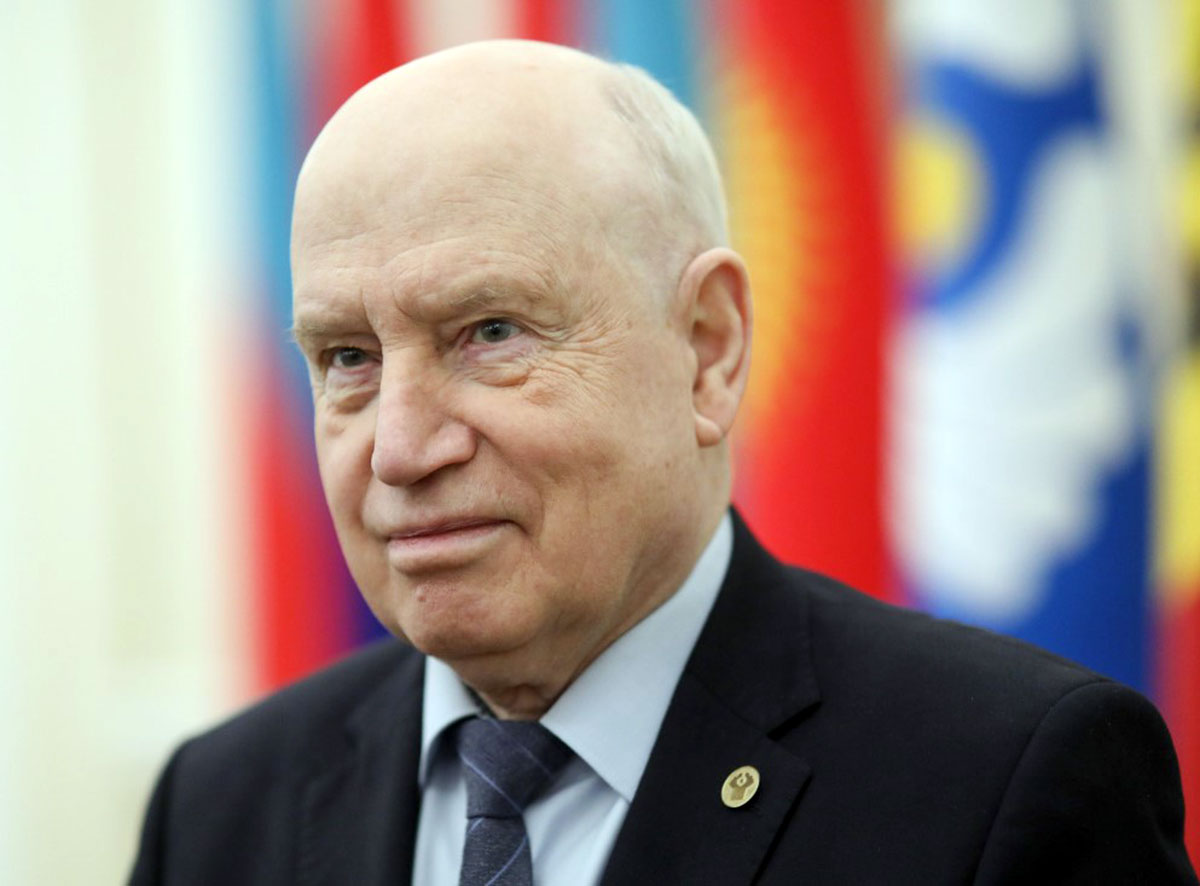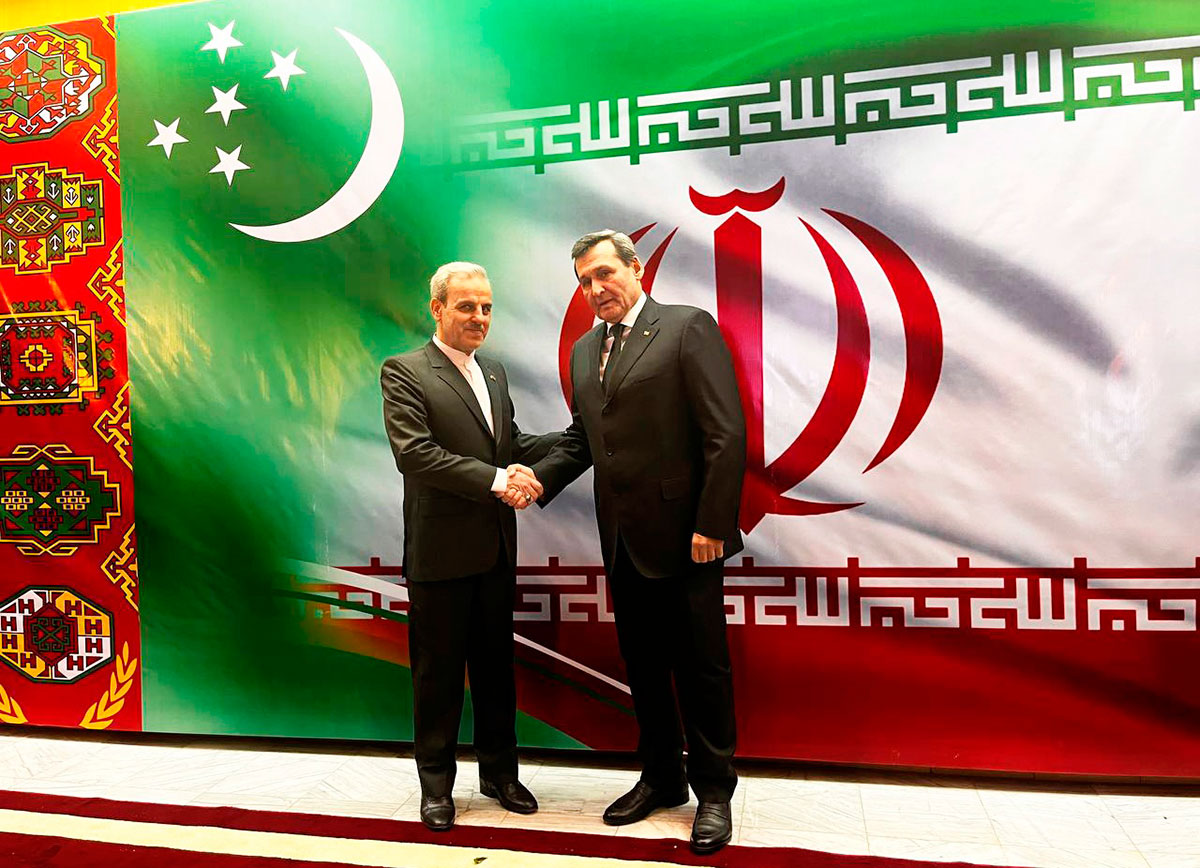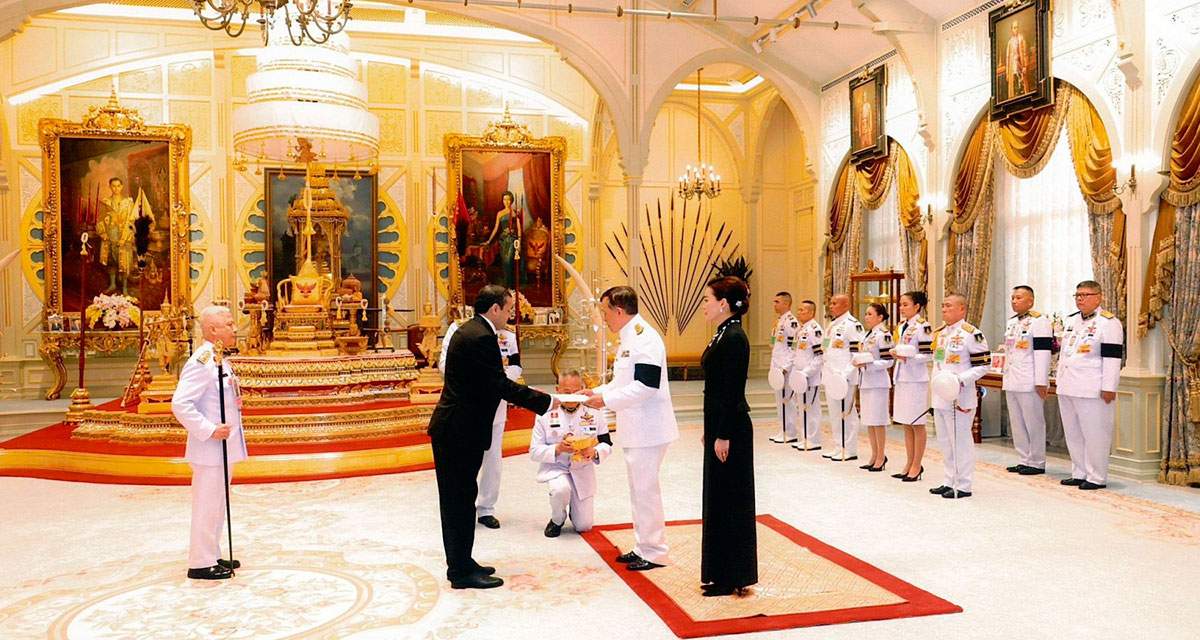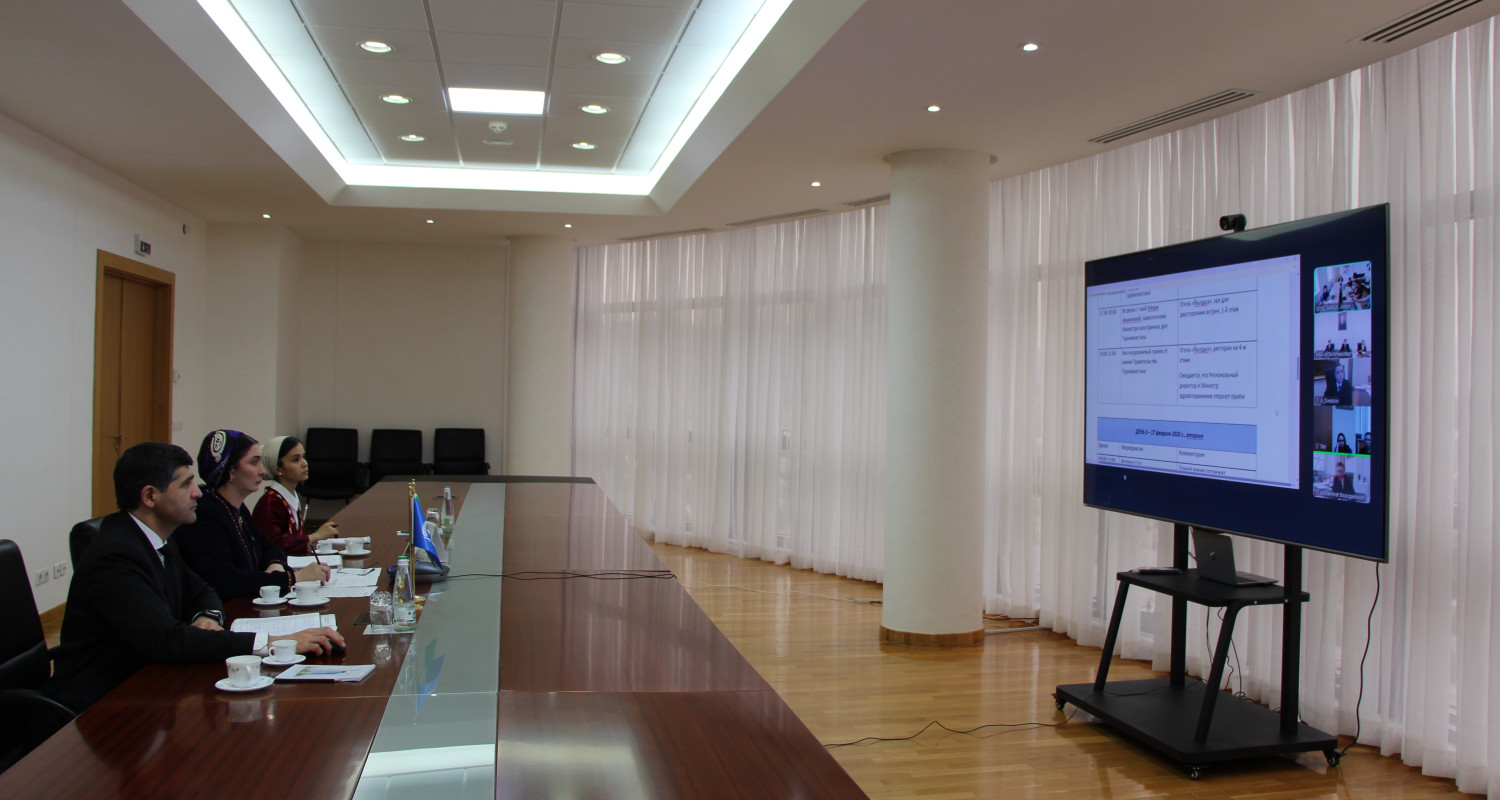Turkmenistan actively cooperates with the Commonwealth of Independent States in various fields. CIS Secretary General Sergei Lebedev spoke about the country’s role in integration projects in the Commonwealth space in an exclusive interview with the MIR TV channel.
“I am glad to have the opportunity to talk about the role of Turkmenistan in the CIS and its participation in integration projects. Because I see that the role of Turkmenistan is often belittled in mass media.
Turkmenistan is an active participant in all integration projects and integration interaction. But there is one peculiarity. In 2005, all CIS states recognized the associated membership of Turkmenistan. Why was such an associate member status adopted in the CIS? Because Turkmenistan has declared a policy of permanent neutrality. This course, this line, this policy was recognized by the UN – the status of a neutral state. This imposes its own characteristics on the participation of Turkmenistan in our affairs.
Turkmenistan participates as an observer, as a rule, in matters related to military cooperation, in some issues of political interaction, but, nevertheless, it still participates. As for the humanitarian sphere and economic cooperation, here Turkmenistan is sometimes more active than other CIS member states. From the mouths of the leaders of Turkmenistan, primarily the Presidents, both the previous one, Gurbanguly Myalikgulyevich Berdimuhamedov, and the current President Serdar Gurbangulyevich, many initiatives have already been voiced aimed at strengthening interaction within the Commonwealth.
I can give many quotes, but the most recent is the statement of the current President of Turkmenistan, Serdar Gurbangulyevich, six months ago at the Summit of Heads of State in Bishkek. I do not want to distort this statement and will read it: “I am confident that the interaction of states in the Commonwealth format is an important factor in ensuring conditions for the successful promotion of cooperation on topical issues. “I would like to confirm Turkmenistan’s strong commitment to further interaction within the CIS and express confidence in the great prospects for our cooperation.” I want to say that these words are self-explanatory.
Being a participant of many events within the CIS that took and are taking place on the territory of Turkmenistan, I would like to give specific examples of such interaction. Turkmenistan has already chaired the Commonwealth of Independent States several times. Some states in our country deviate from taking on the functions of the Chair for various reasons. Turkmenistan calmly takes on this function and has very successfully held two chairmanships within the CIS.
Within the framework of the chairmanship of Turkmenistan in Ashgabat and other cities of this state, many important events were held that promoted strengthening cooperation, friendship, and good neighborliness in relations between the CIS states. Two cities of Turkmenistan were twice declared cultural capitals of the CIS. These are Dashoguz and Mary cities. Many cultural events took place in these regional centers. Artists, figures of art, science, education, and athletes came there. I would like to say with special gratitude to my Turkmen colleagues and the leadership of Turkmenistan that Turkmenistan has excellent venues for holding major forums and international conferences. These sites are not empty. I was a participant in many international conferences not only within the CIS, but also within the UN, which were held in Ashgabat and other cities of Turkmenistan, and were quite productive.
I spoke about other international organizations. I would like to especially highlight the United Nations, because the leadership of Turkmenistan attaches special importance to its initiatives, its actions, and its participation in the UN. The country’s leaders regularly speak at the UN General Assembly, and not just speak, but put forward important initiatives within the UN. In addition, based on the importance that Turkmenistan attaches to the United Nations, the UN Regional Center for Preventive Diplomacy for Central Asia was located in Ashgabat. This center was opened in December 2007, I had the fortunate opportunity to attend the opening of this center, and it has taken its rightful place in many international affairs concerning Central Asia.
I would like to say with satisfaction that the CIS Executive Committee works closely with the Regional Center for Preventive Diplomacy for Central Asia in Ashgabat. I have been to this center several times. And the leaders of the center, in recent years there have been several leaders, and we had them in the CIS Executive Committee. Quite recently, at the CIS Executive Committee, I received the current head of the Center, representative of Georgia Kaha Imnadze. We agreed to continue this close interaction and contacts. We invite experts and the center’s leadership to our events related to the security of Central Asia. They invite representatives of the Executive Committee and CIS experts to their events.
For Turkmenistan, security in Central Asia is of great importance. I would like to say with satisfaction that the leadership of Turkmenistan is actively interacting with the leaders of neighboring Central Asian states; meetings are regularly held both on Turkmen soil and in other capitals of the Central Asian Republics. Good neighborly relations have been established between the leadership of Turkmenistan and the leaders of neighboring states.
I was talking about the political component, about the international activity of Turkmenistan. But Turkmenistan also attaches great importance to humanitarian cooperation. I have already said that within the framework of humanitarian cooperation, the CIS Capitals of Culture programs were implemented in Mary and Dashoguz. Ashgabat hosted the Forum of Creative and Scientific Intelligentsia of the CIS Countries, which brought together representatives of culture and education from the Commonwealth countries. I also participated in the work of this forum.
Sporting events at a very high level take place on the territory of Turkmenistan. A good site has been created in Turkmenistan for school sports. State Duma Deputy Irina Rodnina took charge of this area of our sports cooperation and came to Avaza with schoolchildren at the invitation of the leadership of Turkmenistan. This is a large cultural and tourist center in Turkmenistan on the shores of the Caspian Sea. And Turkmenistan received schoolchildren from all CIS countries very well and facilitated the development of school sports.
In addition, I would like to note the successful performance of Turkmen athletes at various sporting events within the CIS. Last year, the Commonwealth Sports Games were held in Belarus in August, and Turkmenistan represented a solid delegation there. Many athletes were represented from Turkmenistan, who, by the way, took many prizes and received medals. I also participated in both the opening and closing of these Games, and saw how warmly Turkmen athletes were received.
And I cannot but mention the priority area of interaction and cooperation within the CIS – this is the economic sphere. And here Turkmenistan is also quite active. In 2019 in Ashgabat, at the initiative of Turkmenistan, the heads of state adopted a very important document – the Declaration on Strategic Economic Cooperation of the CIS Member States. This document was later used as the basis for another important document, “On the Strategy for Economic Development of the CIS until 2030,” which was later adopted. The CIS Economic Development Strategy was based on precisely those proposals of Turkmenistan that were made in the Declaration on Strategic Economic Cooperation of the Commonwealth countries.
The leadership of Turkmenistan pays great attention to the development of transport corridors. Turkmenistan is a transit state with a very advantageous location. Transport routes pass through the country from north to south, from east to west. Turkmenistan is an initiator and active participant in the development and improvement of transport corridors. It not only initiates, but also actively develops these transport routes. These are, first of all, roads, railway transport, and then air routes. Turkmenistan has modern airports and a fleet of modern aircrafts.
In addition, energy, oil and gas production are also areas of cooperation in which Turkmenistan is also actively involved. Therefore, to summarize, I would like to say, as the Secretary General, that representatives of the Executive Committee and the Commonwealth countries, which is very important, are satisfied with the interaction with Turkmenistan within the CIS. And we are all confident that this cooperation will further develop, improve, and acquire new dimensions in the interests of both Turkmenistan itself and other CIS countries.
And I cannot but note how quickly the economy of Turkmenistan is developing – many modern industrial enterprises have been created that produce high-quality products. And it’s not just textiles.
Moreover, how the cities of Turkmenistan are changing! For those who have not been to Turkmenistan, I strongly recommend going there and taking a look. It makes an impression. White-marbled Ashgabat is a modern, beautiful city with wide highways. A new city was built – Arkadag. My Deputy I.T.Nematov was at the opening of this beautiful city, a modern, truly “smart city”. This city makes an impression on everyone who has visited it. It continues to develop, like other regional centers. I visited all the regional centers and saw how these cities have changed. Transport and healthcare are being developed, schools and excellent higher and secondary educational institutions are being built.
It is necessary to touch upon such a topic as the development of sports and physical education in Turkmenistan. I have already spoken about the achievements of Turkmen athletes at international sports competitions, but when you visit Turkmenistan, you see how many sports facilities have been built. These include gyms, stadiums, and tracks for various competitions. The famous Health Path near Ashgabat runs through the mountains and is visible from the city. Those who want to stay fit walk along it and improve their health. And a good incentive for this development of sports and healthcare, of course, is given by both the former President, respected Gurbanguly Myalikgulyevich Berdimuhamedov, and the current one, Serdar Gurbangulyevich. They play sports themselves and pay great attention to its development.
This is what concerns Turkmenistan, its development, its participation in our integration cooperation. “I would like to express not only hope, but also confidence that Turkmenistan will continue to be an active participant in our integration cooperation.”
Turkmenistan is also a very rich culture. What role had Magtymguly Fragi played in the development of Turkmen poetry?
“2024 has been declared as the year under the motto “The Fount of Wisdom of Magtymguly Fragi.” This year marks the 300th anniversary of his birth. This is a significant date. And I want to say, firstly, as a native of Central Asia, that the name of Magtymguly is known not only in Turkmenistan, in Central Asia, it is known throughout the world as the name of a great poet, writer, thinker, and philosopher. And if previously many people knew only his name, then this anniversary, the 300th anniversary will serve precisely to bring people into closer contact directly with his work, with his poetry, and his thoughts.
I looked through the book of Magtymguly’s poems, gifted to me. And there, indeed, many works and poems make you think. These are reflections about life, about relationships between people, philosophical reflections. It is very interesting to read and, most importantly, informative.
The wording in the Russian translation of this year’s motto is «Кладезь разума Махтумкули Фраги» (“The Fount of Wisdom of Magtymguly Fragi”). I would like to say with satisfaction that this anniversary is celebrated not only in Turkmenistan, but also in other CIS republics.
This year, I am sure, that plenty of events dedicated to Magtymguly’s anniversary have already been planned and will be held. Many monuments created in many republics of the Commonwealth countries are dedicated to him. There is a wonderful monument in Ashgabat itself. There is a monument in Astrakhan, because the Turkmen community is quite active in the Astrakhan region. Good neighborly cooperation has been built between Turkmenistan and the Astrakhan region.
Almost in all the republics of Central Asia there are monuments to Magtymguly Fragi and streets named after Magtymguly. And I believe that preserving the memory of thinkers, creative people who made a great contribution to the development of culture in the Commonwealth, honoring the memory of these people, promotes the preservation of friendship between our countries and greater understanding of each other.
And the fact that commemorative events dedicated to Magtymguly will be held this year in other republics, I believe that this is very important for our countries. The CIS Executive Committee will actively support these events.
I have just returned from Belarus, and there, at a meeting of the Council of Permanent Plenipotentiaries of the CIS countries, a presentation was made dedicated to this date – the 300th anniversary of Magtymguly. It was received with interest by the ambassadors of the Commonwealth countries and other participants of the presentation. And for me it is even more important that the ambassadors of the Commonwealth countries supported this year and expressed their readiness to help in every possible way in the celebration of this anniversary and significant date. I want to emphasize once again that it is significant not only for Turkmenistan, but also for the entire Commonwealth of Independent States.”
Magtymguly Fragi made his poetry closer to the people. What is his contribution to the development of the Turkmen language?
“It is a well-known fact that Magtymguly Fragi contributed to the development of the Turkmen language, and he is very significant for the Turkmen people. Why? Because his contemporaries very often used Arabic and Persian in their poetic and literary works. A lot of works were written in Arabic and Persian, or there were significant inclusions of Arabic and Persian words. And the great merit of Magtymguly Fragi, which is celebrated by the Turkmen people, is that he began to write in a language close to the common people.
And this feature promoted his popularity, because people began to read with interest and perceive what Magtymguly wrote about. And this approach to literary creative works, the presentation of wise thoughts in a language close to the people – these are the most important achievements of Magtymguly Fragi, as residents of Turkmenistan believe.”







